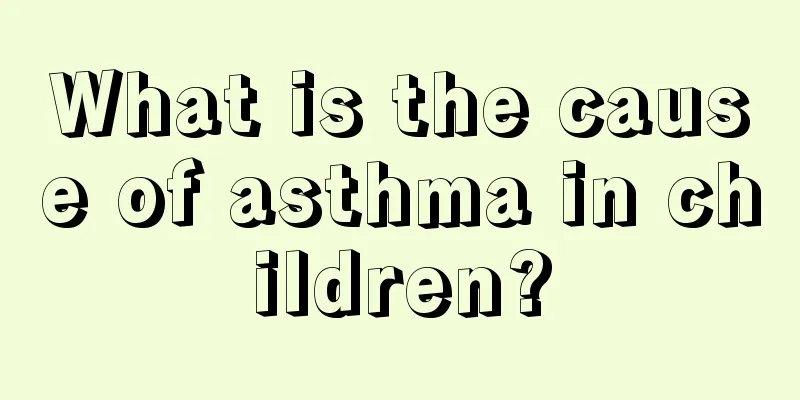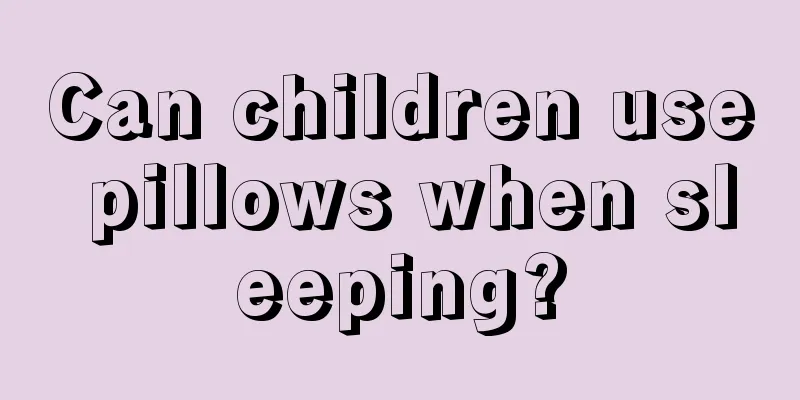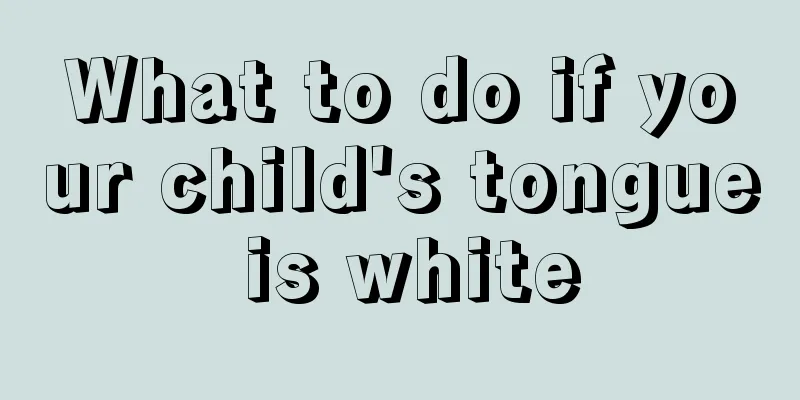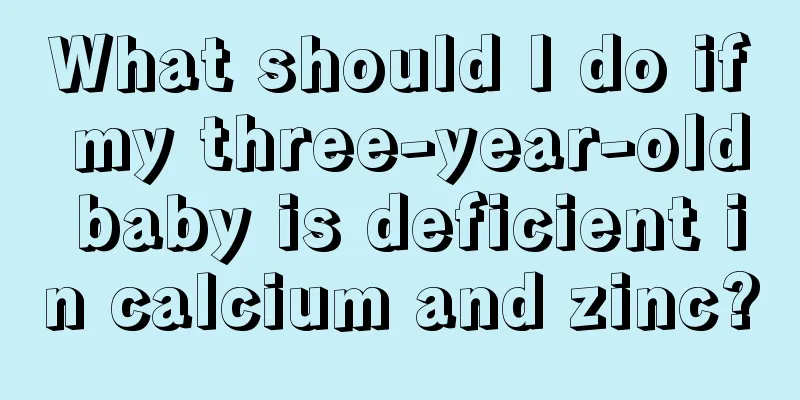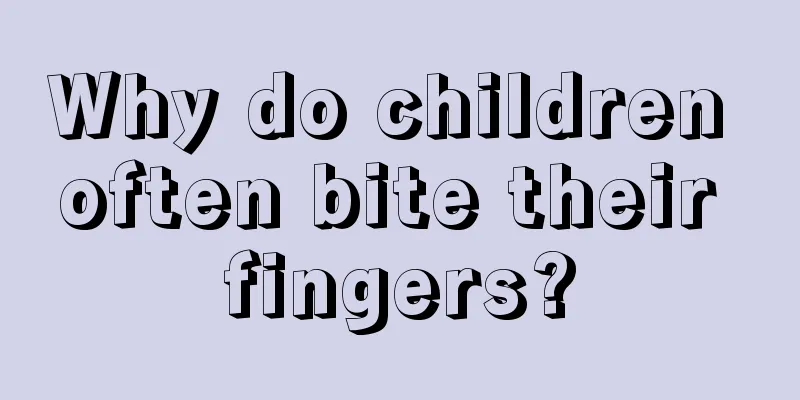Symptoms and treatment of otitis media in children
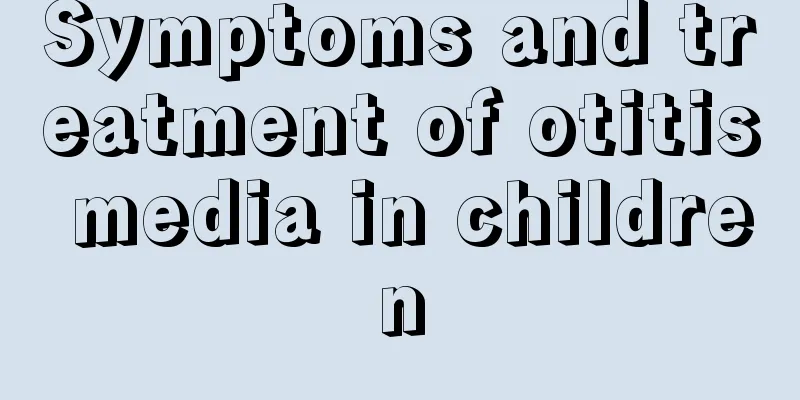
|
Speaking of otitis media, many parents have more or less some understanding of the disease, because otitis media is a disease that is easy to occur in children. So, what exactly is otitis media? Do you know the symptoms and treatment of otitis media in children? Families with children or patients with otitis media may wish to learn more about otitis media. Some parents do not understand the symptoms of otitis media, which leads to them not noticing in time when their babies are suffering from the disease. Therefore, parents are reminded to learn more about the symptoms and treatments of otitis media in children, and to pay attention to changes in their children's physical health at any time. What is otitis media Otitis media is an inflammation of the middle ear and is a common cause of ear pain in children. Otitis media is more common in children under 8 years old. It is often a painful complication of an upper respiratory tract infection, such as the common cold or throat infection. Symptoms of otitis media in children: (1) Early stage (medically known as Eustachian tube obstruction stage): Children may show symptoms such as lack of energy, loss of appetite, tinnitus, and ear discomfort (children cannot express themselves), but ear discomfort will affect the baby's play and sleep. During this period, doctors may find that the eardrum (medically called tympanic membrane) is sunken and there is fluid in the middle ear. (2) Progressive stage (medically known as the pre-suppurative stage): manifested by high fever, body temperature can reach 39℃~40℃, crying and restlessness, hearing loss and ear pain in children, accompanied by gastrointestinal symptoms such as nausea, vomiting, diarrhea, etc. These symptoms are similar to those of a cold or enteritis and are easily ignored or misdiagnosed. After examination, it can be found that the eardrum is congested and the auditory ossicles are red, swollen and bulging. (3) Peak stage (medically known as the suppurative stage): Children have high fever and refuse to eat. In severe cases, they have a gray complexion, fluctuating tinnitus, hearing loss, and ear pain radiating to the surrounding areas. Examination may reveal a bulging eardrum and pus in the middle ear. (4) Late stage (medically known as the dissipation stage): Generally, 4-5 days after the onset of the disease, the child's body temperature drops, the ear pain disappears, and the child can fall asleep, but the eardrum ruptures, pus flows out of the ear canal, and tinnitus and hearing loss still exist. Treatment of otitis media in children Special reminder: Not every baby with otitis media will have four clear stages, and it is often difficult to distinguish the specific stage of the disease, so young parents should not force it. The important thing is to be vigilant. The earlier the diagnosis and treatment are discovered, the better the effect. If the above symptoms occur, parents should take their children to the hospital for treatment, and the doctor will use an otoscope to examine the child's ears. If there is exudate in the ear, it can be collected to identify the microorganism causing the symptoms. Your child's doctor may give him or her a course of antibiotics. Sometimes, ear fluid may remain in the ear for up to 3 months, so children may still have some hearing loss. A ruptured eardrum will heal in about a week. 3 months after the child develops otitis media. Your child's doctor may retest your child's hearing to make sure it's back to normal. If your child still has hearing problems, wet ear may be the cause. With treatment, the Eustachian tube will gradually widen as your child grows, allowing the fluid to drain more easily. As a result, the middle ear is less susceptible to infection. After children are 7 or 8 years old, otitis media is less likely to occur. Otitis media is one of the common diseases in children, so the symptoms and treatments of otitis media introduced here are expected to help parents and help their children get rid of the disease as soon as possible. It is a reminder for families with babies under 8 years old to be especially alert to the symptoms of otitis media and to detect and treat the disease early. |
<<: What to do if children have anorexia
>>: What to do if your child has cerebral palsy
Recommend
What is the cause of excessive eye secretion in a four-year-old child?
Children are the treasures of the family. Once th...
What should I do if my baby has severe picky eating?
Parents should pay enough attention to their baby...
The baby wakes up more frequently at night
Babies always wake up at night out of habit. Many...
Baby vaccinations
Everyone knows that the body resistance of a newb...
Treatment of cough and vomiting in two-year-old baby
Cough is a very common disease. This type of dise...
What to do if your baby has abdominal pain and vomiting
A baby's stomach and intestines are very sens...
How to treat jaundice by sunbathing
Many babies now have symptoms of jaundice, and ma...
What should you do if your child's cough causes a headache?
When the seasons change, it is easy to catch a co...
How to deal with acute gastroenteritis in three-year-old children
Children's stomachs are very fragile. If moth...
What foods are good for children's spleen and stomach
During the child's growth and development stag...
Why are blisters on the child's body?
Every mother loves her child very much and usuall...
Does a little boy need surgery for phimosis?
Phimosis is a common genital problem, which is ma...
What should I do if my baby still has a stuffy nose after recovering from a cold?
Children are the focus of protection in every fam...
What to check for short height in children
Children's height is constantly increasing du...
Use honeysuckle for baby eczema_Can honeysuckle cure eczema
Eczema is a common skin disease. Babies are very ...
